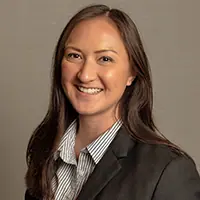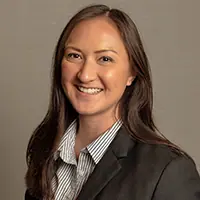
Former CFPB Head on a Post-Pandemic Banking Industry
Banks across the country have been frontline responders in the unfolding economic crisis.
Many are offering forbearance and modifications to borrowers facing health emergencies or financial hardship. But they should take care not to assume business will get back to normal for their consumers, even as states reopen and economic activity thaws, says former CFPB Director Richard Cordray.
Cordray, the former Ohio Attorney General, headed up the Consumer Financial Protection Bureau after its inception in the passage of the Dodd-Frank Act until his resignation in 2017. The sometimes-controversial agency focuses on consumers’ financial rights and protections; its jurisdiction extends to institutions above $10 billion in assets.
Bank Director recently spoke with Cordray after a COMPLY Summit Series webinar that he participated in about how banks can navigate customer relationships during and after the pandemic.
BD: This pandemic has led banks to roll out consumer-friendly policies, like waiving or suspending overdraft or late fees. Do you think these changes are permanent, or do you see them coming back?
RC: The fees have been put on hiatus at certain banks, but they’re still out there. It has been better practice for banks, during this crisis, to be very consumer friendly – recognizing that, through what is clearly no fault of their own, many of their customers have been required to stay at home, their businesses have been shuttered and they don’t have income coming in – and give them a break.
BD: What should guide banks as they decide how to help consumers?
RC: At this point, I think the pressure on banks is mostly reputational. If banks are not perceived as serving their customers in involuntary distress well, they end up in trouble as a matter of public branding. There’s a certain normative effect on banks now, in the depths this crisis, that has nothing to do with what they’re legally allowed or not allowed to do.
If bank customers are going regain their footing in the future, shoving them into bankruptcy or financial ruin is not helpful and it’s not in the bank’s own interest. Reputational risk is a real and significant thing that banks have to think about. All you have to do is think about Wells Fargo and how their reputation has been damaged in recent years. Banks do not want to take on the brand of being a company that’s not sensitive to their customers.
BD: There have also been consumer-friendly practices coming out of the CARES act and different edicts from state government for moratoriums on evictions. How can financial institutions aid in these efforts?
RC: To the extent that banks hold car loans or mortgages [that aren’t subject to CARES Act relief], they have a judgment to make: Are they going to afford similar relief to their customers? Some are, some aren’t. If you’re holding auto loans, you can dictate that there will be no auto repossessions during this period. I think that would be by far the better practice.
BD: We’ve seen announcements from regulators encouraging banks to work with customers. Is there anything regulators or banks could be doing more of?
RC: I think it would make sense for mortgages holders to give forbearance to their customers, whether or not its mandated by the CARES Act. Foreclosure is a last resort. If we have a rash of foreclosures, they’re going to get tied up in the courts and it’ll be difficult for mortgage holders to foreclose quickly. They will start to suffer the loss of the abandoned and vacant houses that we saw during the last crisis, and that’s something to be avoided at all costs for them.
BD: Once we return to a more normal operating environment, I imagine many of these types of forbearance relief will go away. Do you have any thoughts about how banks can help customers through this transition?
RC: The wrong way to do this would be to say that debts accumulated over the course of the emergency orders need to be repaid all at once. That is not realistic and is not going to be successful. If people couldn’t make those payments during this period, they’re not going to have all that money suddenly to pay it just because we came to the end of this period. The result will be foreclosures, evictions and repossessions. The right thing to do is have that amount be repayable over time or put it on the back end of the loan.



